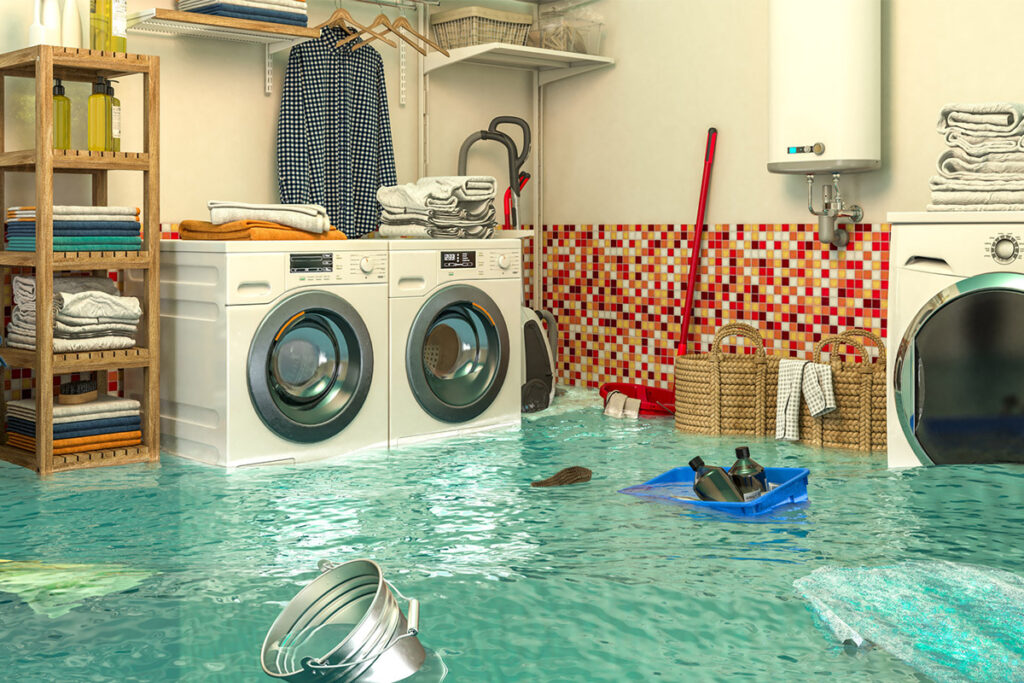In this post:
- 20 Types of Insurance for Homeowners
- 1. Homeowners Insurance
- 2. Flood Insurance
- 3. Private Mortgage Insurance
- 4. Title Insurance
- 5. Auto Insurance
- 6. Gap Insurance
- 7. Umbrella Insurance
- 8. Health Insurance
- 9. Dental Insurance
- 10. Vision Insurance
- 11. Pet Insurance
- 12. Disability Insurance
- 13. Life Insurance
- 14. Long Term Care Insurance
- 15. Earthquake Insurance
- 16. Property Insurance
- 17. Casualty Insurance
- 18. Travel Insurance
- 19. Legal Insurance
- 20. Identity Theft Insurance
- Types of Insurance for Homeowners
As a homeowner, you need to protect your house and property from catastrophes, accidents, and natural disasters. Whether you’re a new homeowner or simply re-evaluating your existing coverage, we’ll talk you through the different types of insurance that are essential for homeowners.
20 Types of Insurance for Homeowners
Every sound financial plan includes a way to protect your most valuable assets. For homeowners, this typically includes their home, plus any additional real estate properties. But while homeowners insurance might be a given for every homeowner, it’s important to protect all your other assets as well.
1. Homeowners Insurance

If you own a home, you must have homeowners insurance. Most lenders require that a homeowner have a home or hazard insurance policy in place. This type of property insurance will help cover the costs of replacing your home – and its contents – in the event of a major catastrophe, like a fire or hurricane. In addition, homeowners insurance will replace items within your home that are stolen during a home robbery.
Many homeowners policies also will cover the costs of renting elsewhere while your home is being repaired after an insured catastrophic event. And the smartest homeowners will make sure that their property insurance policy covers liability for any injuries that happen to anyone while on their property. In some cases, your policy can even protect you against liability for injuries that happen while in someone else’s home – for example, if your dog bites your neighbor while in your neighbor’s home.
A homeowners policy will replace items inside your home, like furniture, clothing, appliances, and other personal items, up to a certain limit. The Insurance Information Institute estimates that most policies will replace personal items up to a limit of 50-70% of what the home itself is insured for. So if your home is insured for $400,000, you can expect that your policy will replace your home’s contents up to $200,000-$280,000 after an insured catastrophic event.
Most home purchases are made with a mortgage loan. In these cases, the mortgage holder ( usually a bank) is also named on the homeowners policy to guarantee that the bank’s investment is protected in case of serious or total damage to your home.
You should know that home insurance isn’t a one-size-fits-all product. There are almost an endless number of customizable options, and you can find a wide variety of homeowners policies with many different values and stipulations.
Homeowners policies are typically available at three distinct levels:
- Actual cash value
- Replacement cost
- Extended replacement cost/value
An actual cash value policy covers the cost of your home and its contents, after deducting depreciation, which represents how much the items inside your home are worth today, not how much you paid for them at the time of purchase.
A replacement cost policy, on the other hand, will cover the actual cash value of your home and its contents without subtracting any depreciation – this type of coverage will allow you to repair or rebuild your home up to its original value after an insured event.
The extended replacement cost/value homeowners policy is the most comprehensive and generally the most expensive. This type of policy will cover whatever the costs are for repairing or rebuilding your home, even if those costs exceed the limits of your policy. These policies typically will cover up to 25% more than your policy limit.
Many financial advisers recommend this type of coverage because it’s essentially inflation-proof. It’s reasonable to think that construction costs will increase over the life of your home, so having in place a policy that will cover costs over the limit of your home’s original value is a smart move that can protect your financial liquidity in the case of an insured catastrophic event.
2. Flood Insurance

Most homeowners insurance doesn’t typically cover flood damage from natural disasters. If you live in an area that is prone to flooding, you likely need to purchase a separate flood insurance policy. In fact, it may be required by your mortgage lender. If you don’t live in a high-risk area for flooding, it will be up to you to determine whether it makes sense for you to purchase a separate flood insurance policy. A knowledgeable insurance broker can help you determine your best path forward.
Flood insurance can be purchased to cover your home and also its contents. Building coverage for your home will help protect everything from your electrical and plumbing systems to your flooring, appliances, furnaces, and water heaters. Flood coverage for the contents of your home will help replace your personal belongings if they are damaged during a flooding event.
3. Private Mortgage Insurance
If you purchase a home without a down payment that is at least 20% of the home’s sale price, the lender will likely require you to take out private mortgage insurance (PMI). The purpose of mortgage insurance is to reassure the lender that the buyer can afford the home loan, despite a lower down payment.
Once the homebuyer has paid the mortgage to below 80% of the home’s value, they can request for PMI to be canceled, as long as payments are current and they are in good standing with the lender.
4. Title Insurance
When you purchase your home, your lender will require that you purchase title insurance to protect the lender’s investment in the case of issues with the deed after closing.
You may choose to purchase title insurance that can help protect you against any financial loss related to liens against the property that you weren’t aware of at the time of purchase, various other title errors, or challenges to your ownership of the property. Even if you’re buying your home with cash and don’t need title insurance for the mortgage, it’s smart to have title insurance in place to protect you down the road from any unforeseen title issues.
5. Auto Insurance

In most states, certain types of car insurance are required by law – so make sure that you understand the liability requirements within your state before purchasing an insurance plan. Even if you think you don’t need it, car insurance is a good investment – car accidents happen in the blink of an eye, and the results can be catastrophic. If you’re involved in an accident that’s your fault, and someone is injured or killed, you could lose everything.
Auto insurance comes in a few different types:
- Liability insurance coverage
- Collision insurance coverage
- Comprehensive insurance coverage
Liability coverage is often cheap car insurance compared to the costs of collision or comprehensive coverage. Liability insurance protects you against the costs of any injuries or damages caused to another driver or the driver’s vehicle by an accident you’re responsible for. Collision coverage specifically covers the costs to repair or replace your vehicle if it’s damaged or totaled in an accident. Comprehensive coverage is designed to protect you against all other types of damage to your vehicle – hail, flooding, fire, theft, or vandalism, for example.
As with home insurance, as a general rule, the more comprehensive the coverage, the more expensive the car insurance policy. In addition, the price of your policy will be influenced by the type of car you drive, your driving record, and demographic factors – plus the coverage, limit, and deductible you choose. Many insurance companies offer car insurance discounts for being a safe driver.
Keep in mind that auto insurance isn’t just for road vehicles. If you own a recreational vehicle, motorcycle, jet ski, or all-terrain vehicle, for example, you will also need coverage for it. Basically, anything that’s motorized and can be driven should be insured to protect you in the case of an accident.
6. Gap Insurance
Gap insurance provides additional coverage for your automobile, but it is not technically car insurance. Instead, it is an additional rider that supplements your existing insurance policy.
If your car is totaled but you still owe money to your lender, gap insurance will help you pay the remainder of your loan not covered by your primary insurance claim.
7. Umbrella Insurance

An umbrella insurance policy protects you from liability claims that surpass the limits of your home and/or auto policies.
Even if you have a good homeowners policy and a sound auto insurance policy in place, some financial advisers recommend also purchasing an umbrella insurance policy. This may be especially important for homeowners with high net worth. In the case of an accident or other occurrence for which you have liability, a general insurance umbrella policy serves as personal liability coverage that stands in the gap between what your other policies cover and your total liability.
Umbrella policies typically help cover legal fees, bodily injury, property damage, and damage to the reputation of others. An umbrella policy will also cover rental properties if you own real estate and serve as a landlord. Usually, the more money you make and the higher the value of your assets, the more likely your financial adviser will be to recommend an umbrella insurance policy to protect the wealth you’re building.
8. Health Insurance

Health insurance is a must-have, considering the rising costs of healthcare and increasing life expectancies. Just one unexpected medical issue can result in hundreds of thousands of dollars in health care expenses, so it just isn’t worth the risk to go without health insurance.
Many homeowners have access to health insurance coverage through their employer, so make sure to take advantage of this option if it is available to you. If not, you may work with an insurance broker to find a health insurance plan that best meets the needs of you and your family. Through provisions of the Affordable Care Act, you may be able to find more affordable health insurance options through the health insurance marketplace than were available in years past.
Health insurance premiums generally don’t come cheap, but when you look at those costs next to the potential medical expenses of accidents, injuries, and chronic health issues, it’s easy to see the importance of health insurance for you and your family.
9. Dental Insurance
Closely related to health care is dental care. Having good dental insurance coverage in place will help make sure you and your family get good, preventative dental care, which can help head off larger health problems in the long run. When you have dental insurance, preventive care typically is covered at 100%. This encourages people to see their dentist for regular cleanings, check-ups, and X-rays, all of which can help prevent issues and detect and remedy issues earlier when they do appear. Dental insurance can potentially save you thousands of dollars on major dental procedures such as root canals, implants, or other oral surgeries.
In addition, the regular preventive care encouraged by dental insurance can help prevent or detect other health issues. Evidence shows that up to 90% of many common health conditions actually start in the mouth. Good dental care, bolstered by dental insurance, can help prevent or manage major health issues such as diabetes and heart disease, potentially saving you money related to your overall health care.
10. Vision Insurance
While many people may think that eye care is covered under traditional health insurance, that simply isn’t the case. Many health insurance plans will only cover catastrophic eye issues such as major surgeries.
You can supplement your health care coverage by purchasing a vision insurance plan, either through your employer or through an independent broker. You can usually find vision plans with various levels of coverage. Some plans pay benefits up to a certain amount, while others pay a predetermined discount (20%, for example) on all services. Generally, you should consider the level of vision care you need when deciding what type of vision insurance to purchase.
11. Pet Insurance
If you’re a homeowner with pets, you may want to consider purchasing pet insurance. Medical care for your pets can get extremely expensive. According to a recent American Pet Products Association’s pet owners survey, only 4% of dog owners and 1% of cat owners carry pet insurance policies.
Having a pet insurance policy can protect you against unexpected and expensive medical procedures that your pet requires – sometimes costing upwards of $6,000 or even more. Most pet insurance policies allow you to choose your veterinarian, and they typically don’t reject any pet, no matter the breed, age, or current medical conditions.
A pet insurance policy allows you to budget more effectively for your pet care expenses, and prevents you from having to dip into your family’s savings – or worse, euthanize a beloved family pet – when expensive medical needs pop up.
12. Disability Insurance

If you are injured or disabled and are unable to work, disability insurance can help make sure you maintain your quality of life – even when unable to hold employment. According to the Social Security Administration, 25% of today’s 20-year-olds will become disabled before reaching the retirement age of 67.
Disability insurance policies are available in two different types: short-term and long-term. Short-term policies are designed to kick in fairly quickly after an injury or accident and continue for a short period of time – they are designed to fill the income gap caused by a temporary illness or injury that prevents you from working, usually for no longer than three to six months. Long-term policies, on the other hand, typically don’t begin until all short-term options have been exhausted.
A long-term disability policy will pay you some portion of your pre-tax income – the percentage will depend on the exact policy you purchase, but usually lands at around 50-60% of your previous income.
Long-term disability policies also are available as either “own occupation” or “any occupation” versions. “Own occupation” policies will pay you if you are unable to assume work within the same occupation you’ve previously worked in – even if you’re able to find work within a different occupation. “Any occupation” policies, on the other hand, will only compensate you if you are unable to perform any work at all, even if it’s in a related field. As you might expect, these policies boast more expensive premiums than “own occupation” policies.
13. Life Insurance
Life insurance is all about making sure the people who depend on you will be provided for in the event of your death. If you have a spouse, children, or even dependent parents who would not be able to support themselves if you died, you should make sure you have a life insurance policy in place that can meet their financial needs after your death.
The Insurance Information Institute reports that only around 54% of Americans have life insurance policies in place. Life insurance policies are available in just about any amount. You should consider your yearly income and how long you plan to be employed, and then choose a policy that can replicate that financial safety net should you die.
Life insurance policies come in several different types. First is the whole life insurance policy – this type of policy is permanent life insurance, and benefits are paid to beneficiaries at the time of the policy holder’s death. A whole life insurance policy remains active for the life of the insured as long as premiums are kept current. In addition to a death benefit, whole life insurance policies build cash value over time, which can be accessed during the insured's lifetime if needed in emergencies.
A universal life insurance policy is a particular type of whole life insurance policy that allows the policy holder to invest the policy’s cash value in a separate account. Typically, this separate account features funds tied to the stock market. This type of policy is considered flexible, which means that both premiums and death benefits can be adjusted as needed.
A term life insurance policy is a type of life insurance policy that lasts for a specific term or period. If you die before the policy term is up, then the life insurance company will pay your beneficiaries the death benefit specified in your policy. If, however, you outlive the policy term, the insurance company will not pay out anything upon your death. Since term insurance has no cash value, it’s typically less expensive to purchase than other types of life insurance policies, while still putting in place financial protection for your dependents. The price you’ll pay for life insurance is heavily influenced by your age, your overall medical condition, and lifestyle factors.
14. Long Term Care Insurance
Long term care insurance helps protect your savings and assets when you need to pay for services like nursing home care and/or in-home care as you age. Long-term care costs are not typically covered by Medicare and come into play when chronic health conditions and disabilities arise.
This type of care is expensive. It’s important to have long-term care insurance in place well before you need it to maximize financial security in your older years. Many financial experts recommend purchasing long-term care coverage when you reach age 60, which is hopefully many years before you need this type of daily assistance.
The price you’ll pay for premiums will be influenced largely by your age and overall health profile when you purchase your policy. Generally, the younger and in better health you are, the less you’ll pay.
15. Earthquake Insurance
Earthquake coverage is not covered under a standard homeowners insurance policy and must be purchased separately. If you live in an area prone to earthquakes, then you know how much damage and devastation they can cause. Homeowners can protect against this level of catastrophe by investing in earthquake insurance, which exists as coverage separate and apart from either standard homeowners or renters insurance.
Earthquake insurance policies include three types of coverage:
- Dwelling Coverage – helps with costs associated with rebuilding a home after an earthquake.
- Personal Property Coverage – helps replace items inside your home that may be lost or damaged during an earthquake.
- Loss-of-Use Coverage – helps cover expenses if you need to live somewhere else while your home is being repaired after an earthquake.
Unfortunately, the fact that earthquake insurance policies often are expensive has led many homeowners to forego them. In fact, the more likely you are to need an earthquake insurance policy, the more expensive it will be – a reflection of the fact that insurance companies often pay out large amounts related to earthquake policies.
Your earthquake policy largely will be determined by factors like the type of policy you choose, and specifics about your home like its age, current condition, and where it sits in location to known faults. Overall, earthquake policies cost homeowners anywhere from $800 to $5000 on an annual basis.
16. Property Insurance
Property insurance is an umbrella term that covers many types of policies designed either to protect a homeowner from property damage or to protect the homeowner from liability. In general, property insurance can reimburse a homeowner in cases of property damage or theft, along with compensating someone other than the homeowner if that person is injured while on the homeowner’s property.
Property insurance comes in many forms, from basic homeowners or renters insurance to other specific policies also discussed here, like earthquake or flood insurance. All are designed to reimburse a homeowner or renter for property lost due to damage or theft.
Property insurance comes in three basic types: replacement costs, actual cash value, and extended replacement costs. Replacement cost policies help a homeowner repair or replace items of personal property at the same or equal value. Similarly, actual cash value policies repay the homeowner for the actual cost of the damaged item, which basically equals the replacement price minus depreciation.
The last type of property insurance policy covers extended replacement costs. These policies will cover more than your coverage limit if construction prices have increased dramatically. However, this increase typically is capped at 25% of the coverage limit.
17. Casualty Insurance
Casualty insurance is another broad category that generally includes vehicle insurance, theft insurance, and liability insurance. Much like property insurance protects homeowners from loss or property, liability insurance protects you from financial loss if you are found legally liable for injury to another or damage to their property. Casualty insurance pays other people if someone files a claim against you or sues you for damages covered in your policy.
Having a sound casualty insurance policy in place can help you avoid financial catastrophe if an accident occurs in your home or otherwise on your property. Many times, you’ll find property and casualty insurance bundled together in one policy.
18. Travel Insurance
Travel insurance protects you from financial losses associated with changes or cancellations of travel plans. According to some measures, nearly half of American travelers have suffered some kind of financial loss associated with travel, and travel insurance has become increasingly popular in the wake of the COVID-19 pandemic.
While travel insurance policies vary, you can find options that cover any damage to your personal property, plus rented property, such as rental cars, and even ransom requests. Travel insurance can cover trip cancellation or interruption coverage, baggage and personal effects coverage, medical coverage, and accidental death or flight accident coverage. Many of these policies will help protect you against financial loss if you have to cancel a trip because of illness, death in the family, weather emergencies, or even last-minute business conflicts.
Travel insurance also often covers 24/7 emergency services, such as replacing lost passports, cash wire assistance, and rebooking canceled flights or hotels. Many companies that sell trips or travel packages also will sell travel insurance, so it’s easy to purchase. Just be careful and read the fine print on any travel insurance offer so that you fully understand coverage limitations and cancellation policies.
19. Legal Insurance
Legal insurance exists to help you handle the unexpected legal fees associated with accidents or other legal emergencies. Much like a health insurance policy, a legal insurance policy allows you to pay a monthly premium (usually around $20) which entitles you to access a network of attorneys who can help you with anything from preparing legal documents like wills and powers of attorney to providing legal counsel, making calls or writing letters on your behalf, or even representing you in court if necessary.
Legal insurance is designed to provide homeowners with peace of mind by granting them the confidence that they have a stable of knowledgeable, credentialed attorneys in their corner to help with any legal issue that comes their way.
20. Identity Theft Insurance
Identity theft costs consumers nearly $17 billion each year, so it’s important to protect yourself. Identity theft insurance can help cover costs ranging from $500,000 to $1 million in the case that your identity is stolen. These policies are designed primarily to cover any costs you incur in the process of restoring your identity – including legal fees, lost wages, or other applicable expenses that are outlined in your policy. The amount of coverage depends on the type of insurance policy you choose. As with most other types of insurance, the more coverage you want, the higher the premium you will have to pay.
Several services that provide proactive credit monitoring services and identity theft protection may also offer identity theft insurance policies. If you’re already working with a company, that can be a great place to start.
Types of Insurance for Homeowners

As a homeowner, it’s important to make sure you have the right insurance that can help you recover from a catastrophic event. There are several different types of insurance policies that help homeowners.
Carefully consider the various types of insurance available and the policies that make the most sense for your household. Having a solid understanding of the various insurance helps you better plan for your future with a financial adviser or insurance broker. These policies can help you to maintain your home, protect your assets, and take care of your dependents in the face of life-altering situations.






